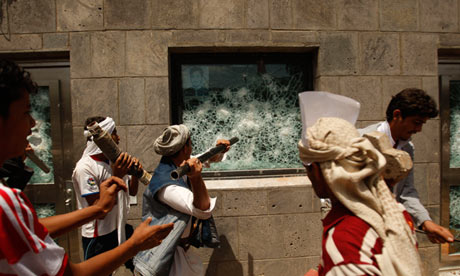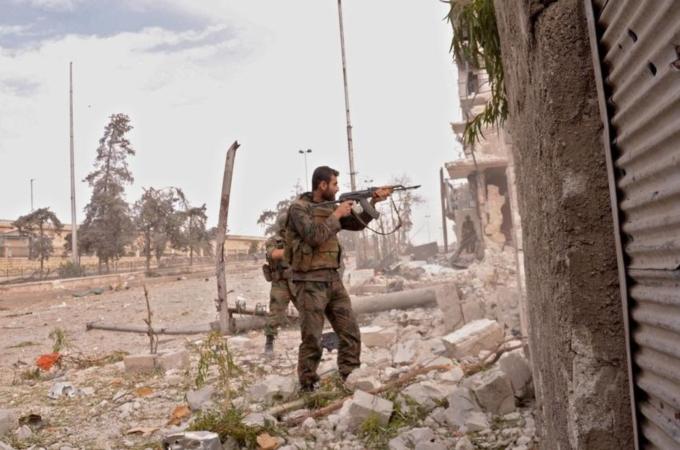By Justin Dorman
Impunity Watch Reporter, Middle East
CAIRO, Egypt – In Egypt, every step President Mohammed Morsi takes towards rectifying a past injustice is accompanied by another step, of his own, in the opposite direction. Morsi recently issued a general amnesty decree that pardoned all political protesters who have been imprisoned since January 2011.
The pardon mainly affects those who were detained for “supporting the revolution” between January 25, 2011 and June 30, 3012, when Morsi began his presidency. Such individuals were mainly civilians who were tried in military courts on charges of possession of weapons, violating curfew, damaging property, and even “thuggery.” Although this decree frees many detainees, it does not extend to everyone.
It does not cover any individual who has been convicted of murder. While such an exception seems reasonable on its face, it still holds serious implications on the right of an Egyptian to have a fair trial. Approximately 1,100 civilians will remain in jail after being found guilty of charges like murder, rape, theft, embezzlement, and use of force with weapons in military courts.
“Military courts cannot be used to try any civilians and those imprisoned after military trials must be referred for re-trial before the ordinary judiciary or released,” said Amnesty International’s Deputy Director of the Middle East and North Africa Programme, Hassiba Hadj. “Equality before the law means that all Egyptians have the right to a fair trial regardless of the nature of the accusations.”
Amnesty International urged Morsi to take further steps in fighting impunity. Though Morsi created a committee to investigate the killings of protesters under Hosni Mubarak and the Supreme Council of Armed Forces (SCAF), little of any substance has resulted from this review. Only three soldiers were convicted of manslaughter when dozens of Coptic Christians were killed in last year’s Maspero protests, and only one member of the riot police is being tried for death and injury to protesters.
What President Morsi is actively trying to do is replace Attorney General Abdel-Meguid Mahmoud, regardless of the removal violating Egyptian law. The Attorney General is supposed to be insulated from political pressures, so his removal is prohibited unless he consents to it. Despite this, Morsi has appointed Mahmoud as the country’s ambassador to the Vatican and named Abdul Aziz the new Attorney General. This action came days after Mahmoud, a Mubarak appointee, failed at obtaining judgment against twenty-four members of the Mubarak regime for their connection with the “Battle of Camel.”
Yesterday, Morsi supporters congregated in Cairo’s Tahrir Square to protest these acquittals. Similarly, anti-Morsi protesters went to Tahrir Square to demonstrate against the Muslim Brotherhood’s monopolization of Egypt’s new constitution. The anti-Morsi activists were the first to the square but were kicked out because of their chants. Eventually, they came back in greater numbers, but were then surrounded when more Morsi supporters showed up. After the two factions chanted at each other for hours, violence inevitably broke out.
“They trapped us from both sides after attacking our stage where we were chanting,” claimed Ibrahim El-Sheikhh, an anti-Morsi protester. “As they beat me, they chanted Allahu Akbar [God is Great] and said they’d kidnap me, but I managed to escape. This is the Muslim Brotherhood.”
Additionally, it was reported that stones and Molotov cocktails were thrown as the opposing protesters clashed in Tahrir Square.
For further information, please see:
Alazma – Decision to Sack the Attorney General Spark a Conflict Between Judges and Mercy . . Hundreds of Judges Calling for “Public” to Refuse Emergency Impeachment .. The News Confirmed the Appointment of Abdul Aziz in Office – 12 October 2012
Guardian – Tahrir Square Clashes pit Mohmaed Morsi Supporters Against Opponents – 12 October 2012
Al Jazeera – Egypt’s Morsi Pardons ‘Revolutionaries’ – 9 October 2012
Amnesty International – Egypt: President Must go Beyond Decree and Carry out Greater Human Rights Reform – 9 October 2012



